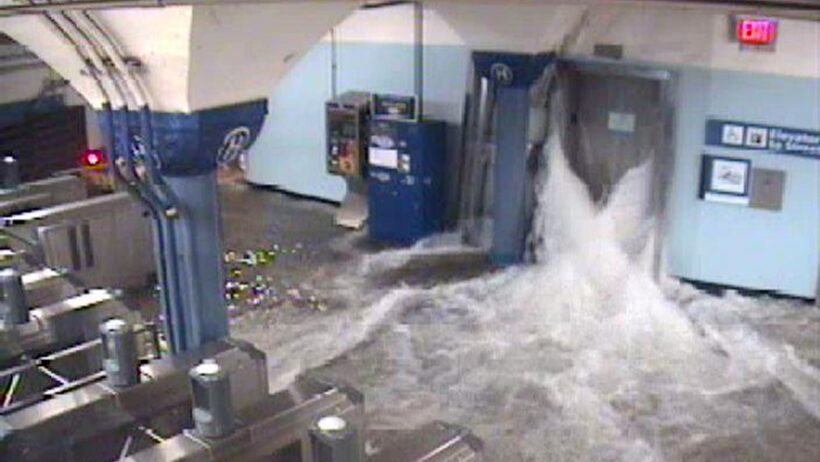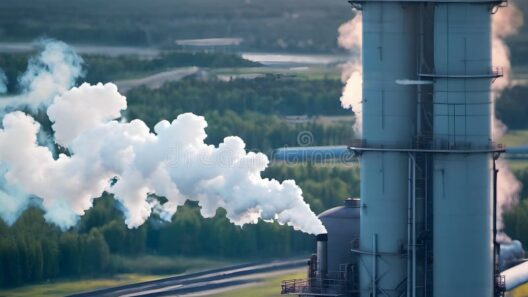The frequency and intensity of extreme weather events have escalated alarmingly over recent decades, sparking discussions about their potential link to climate change. Cyclones, flooding, droughts, and heat waves are not merely harsh realities of nature; they are unmistakable harbingers of a warming planet. These phenomena raise an important question: Are these extreme weather occurrences a wake-up call from global warming?
To better understand this conundrum, one must first delineate what constitutes extreme weather. The term encompasses a variety of weather-related phenomena, including but not limited to hurricanes, tornadoes, blizzards, and heat waves. Each of these events represents an outlier in typical weather patterns, often leading to devastating consequences. Their increasing prevalence can be attributed to a variety of interconnected factors, but climate change emerges as a pivotal culprit.
Scientific consensus supports the assertion that rising global temperatures impact the atmosphere’s ability to hold moisture. Warmer air retains more water vapor, which leads to more intense storms and increased precipitation, culminating in catastrophic flooding in some regions. Conversely, areas suffering from prolonged droughts are faced with the paradoxical reality of increased evaporation rates, further exacerbating their dry conditions. Thus, the interwoven tapestry of climatic shifts directly links these extreme weather events to the overarching narrative of climate change.
To comprehend the gravitas of these extreme events, consider the costs associated with recent natural disasters. The financial implications are staggering. According to estimates, natural disasters inflict losses amounting to hundreds of billions of dollars annually. Beyond the immediate financial toll, these events also have devastating social repercussions, including loss of lives, displacement of communities, and the exacerbation of poverty and inequality. The alarming trend in this context is not merely the isolated occurrence of catastrophic events but their broader impact on societal stability.
Heat waves serve as a salient example of the immediate effects of climate change. The World Health Organization anticipates that heat-related illnesses and fatalities will rise significantly in the coming decades. Extreme temperatures can disrupt agricultural production, resulting in food shortages and increased prices. Countries reliant on agriculture for economic stability may find themselves grappling with increased poverty and unrest due to crop failures. The ripple effects are undeniable; the nexus between extreme weather and social instability is becoming more apparent.
Another striking facet of this discussion is the geopolitical implications of climate-related disasters. As nations grapple with the consequences of severe weather, there is an escalating potential for conflict over diminishing resources such as water and arable land. The migration of climate refugees—individuals displaced by environmental factors—poses additional challenges, as societies may struggle to accommodate populations fleeing crises. This reality underlines the urgent need for global cooperation in addressing climate change and mitigating its effects.
Importantly, the dialogue surrounding extreme weather must extend beyond scientific circles and policymakers. Public awareness and community engagement are crucial in catalyzing systemic change. Grassroots movements, education campaigns, and local initiatives can inspire action at multiple levels, fostering community resilience against the unpredictable forces of nature.
Furthermore, the role of technology in combating climate change should not be overlooked. Innovations in renewable energy, waste management, and agricultural practices offer potent solutions to reduce carbon emissions and enhance adaptability. Transitioning to a low-carbon economy is not solely a necessity; it is an opportunity to redefine our relationship with the planet and its resources. By embracing sustainable practices, we can mitigate the severity of future weather events and promote ecological harmony.
The intersection of extreme weather events and climate change demands an actionable response. It is insufficient to merely recognize the threat; proactive measures must be taken to safeguard vulnerable populations and ecosystems. Governance frameworks should prioritize climate resilience, incorporating adaptation strategies that account for anticipated changes in weather patterns.
Moreover, education systems should be revamped to include comprehensive climate literacy. By equipping future generations with the knowledge and skills to confront climate-related challenges, we are investing in a more sustainable and resilient society. This educational shift extends the understanding of climate issues from the scientific community to the general populace, fostering informed citizens who can advocate for meaningful change.
Ultimately, the recent surge in extreme weather events serves as a profound call to action. Denial or inaction only exacerbates our vulnerability to the increasingly severe consequences of a warming climate. By acknowledging the inextricable link between human activity and extreme weather, we can begin to form strategies that will not only mitigate damage but also promote long-term sustainability.
Thus, one can conclude that these extreme weather events should indeed be viewed as a clarion call from the Earth—a compelling reminder that our environmental stewardship is crucial. We stand at a crossroads, faced with a moral and existential imperative to act decisively. The time to embrace sustainable practices, advocate for policy change, and foster resilience is now.








